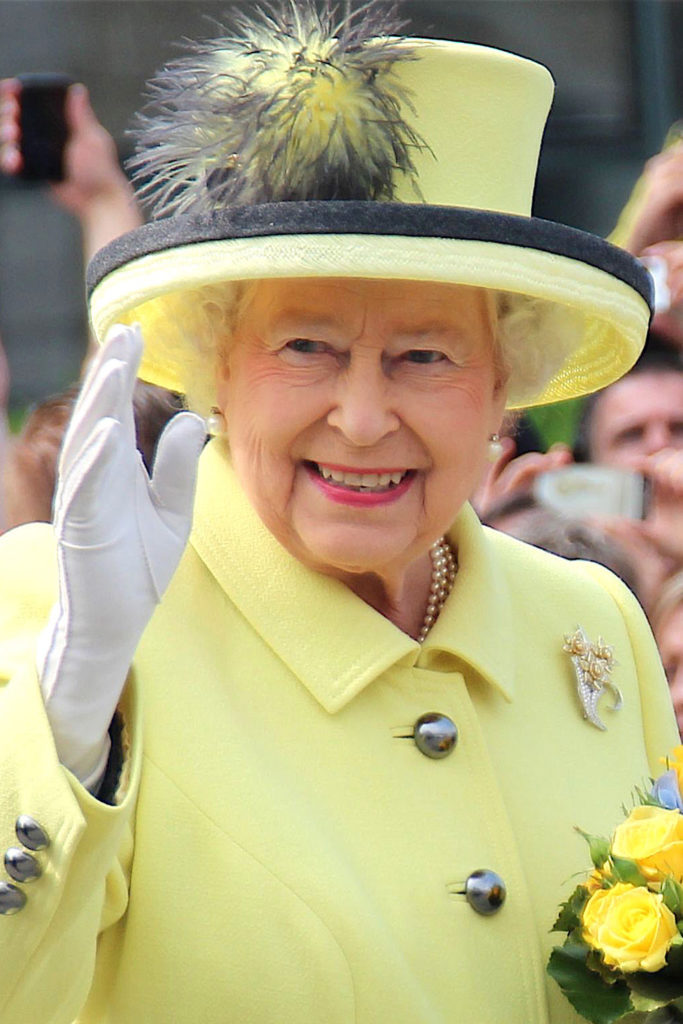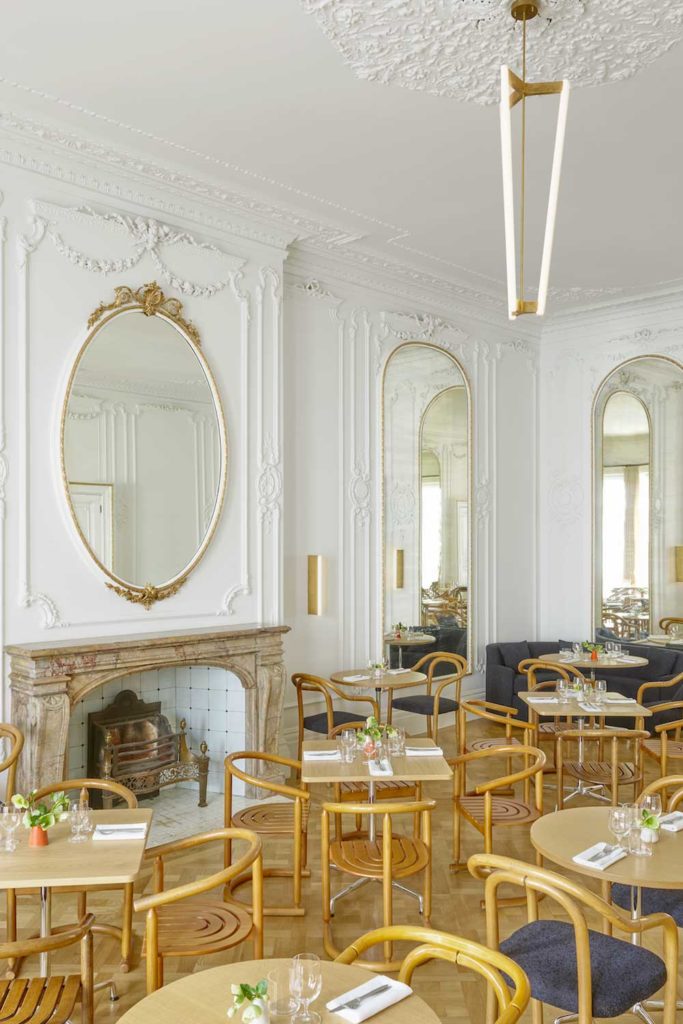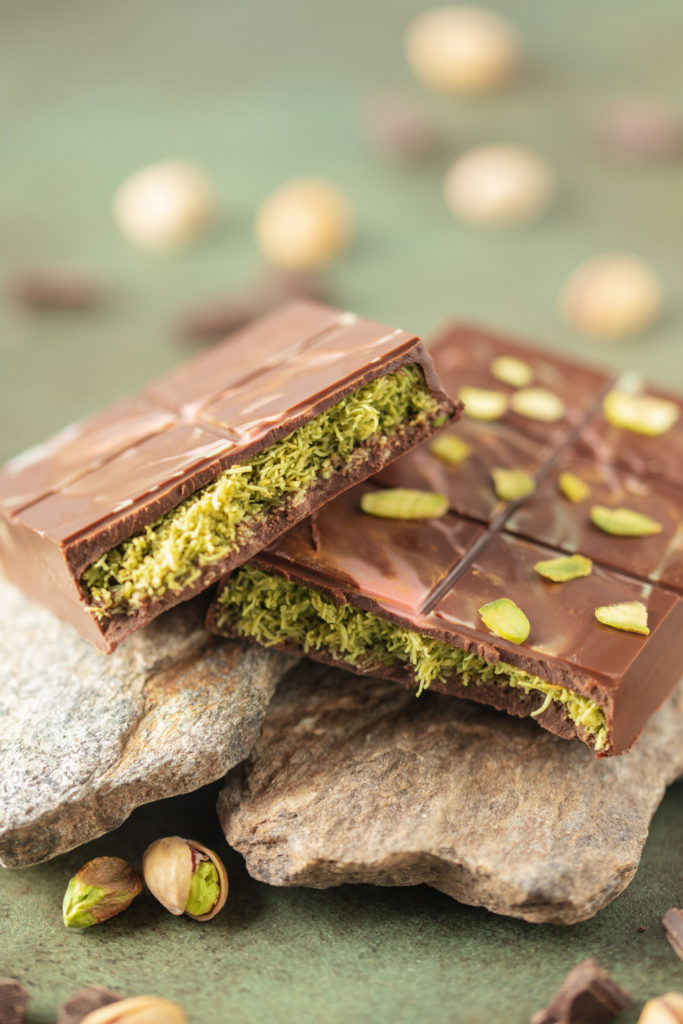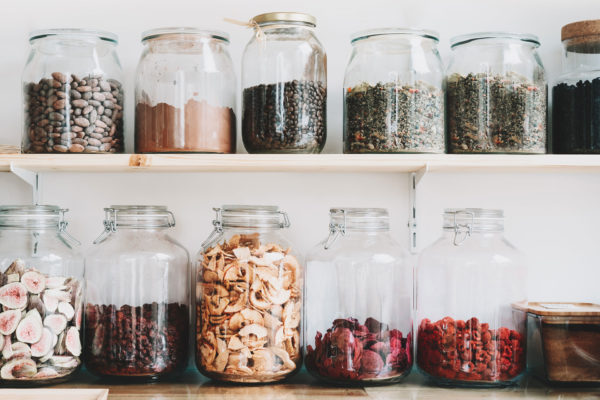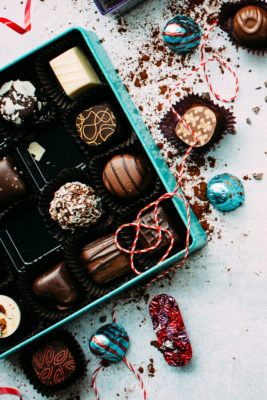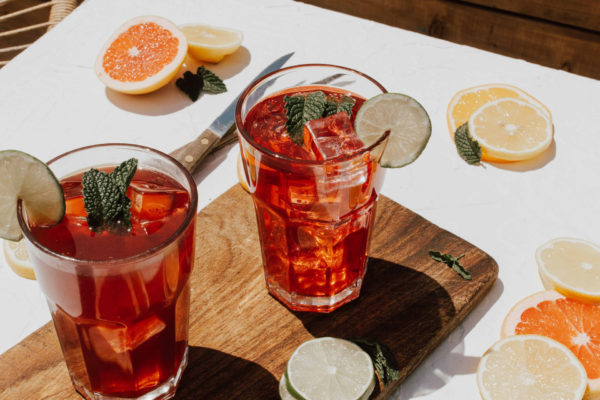Sustainable & Ethical Chocolate Brands To Know (and Eat)
By Ellie Smith
2 years ago
Guilt-free feasting
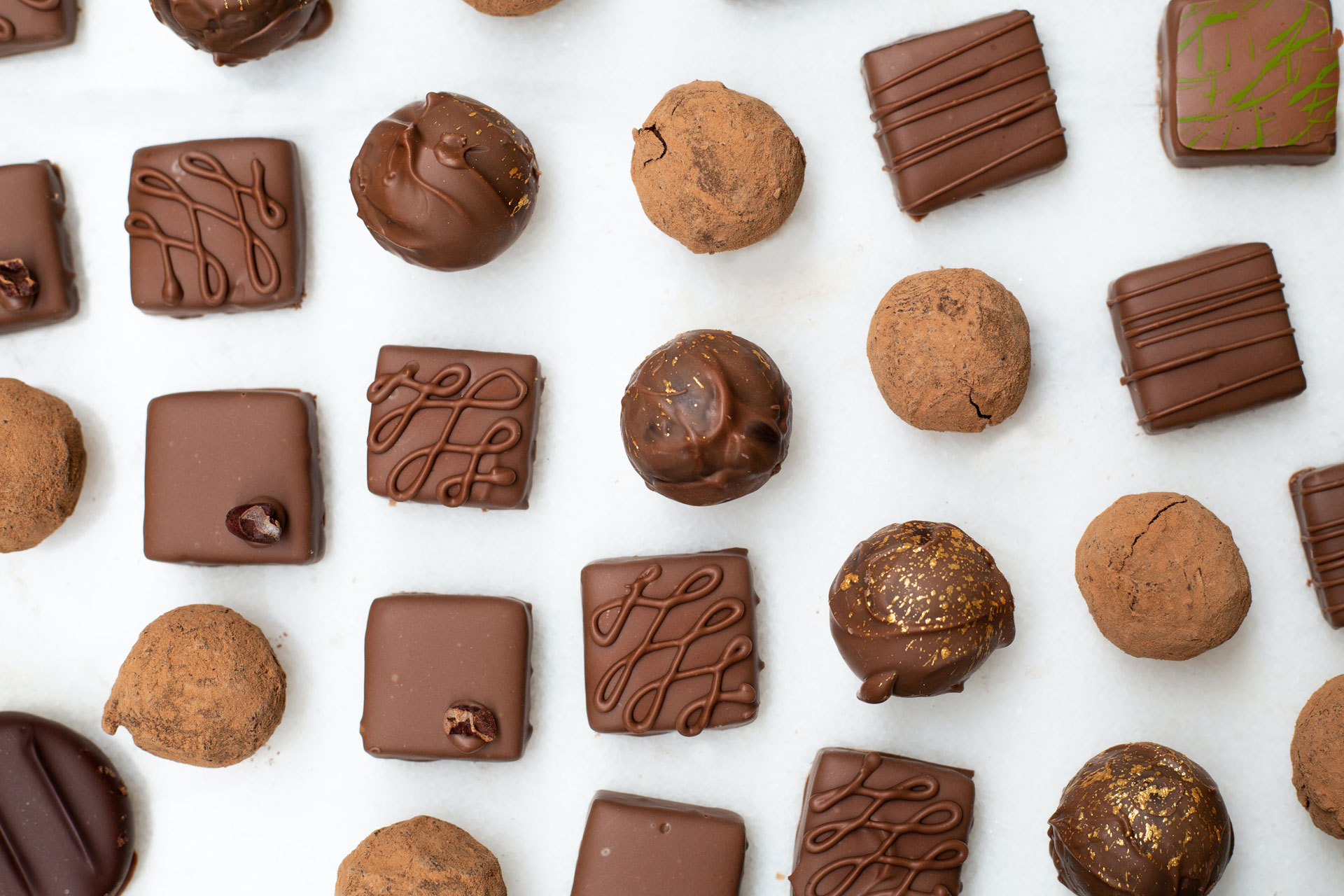
Nothing beats the simple bliss of biting into a bar of chocolate – but, like everything we consume, it’s important to consider where it comes from. A lot of mainstream chocolate brands aren’t taking measures to ensure cocoa growers and farmers are treated fairly, plus the products contain ingredients we should be avoiding (palm oil, we’re looking at you). Not to mention the non-recyclable packaging. Thankfully, an increasing number of brands are doing things the right way. Read on for some of the best sustainable and ethical chocolate brands on the market.
Best Sustainable & Ethical Chocolate Brands
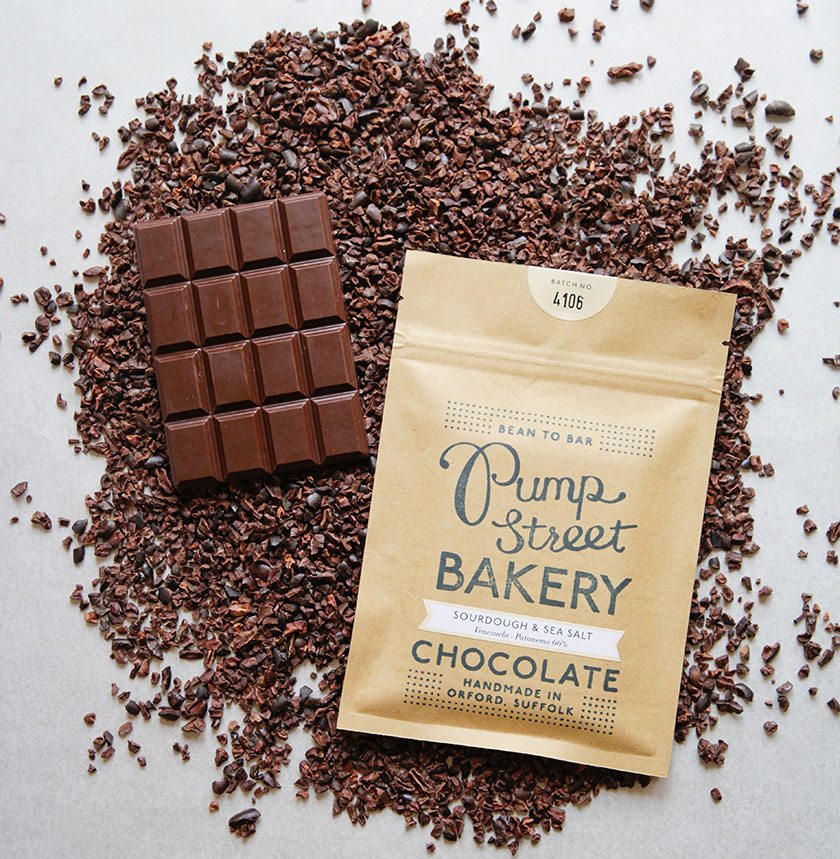
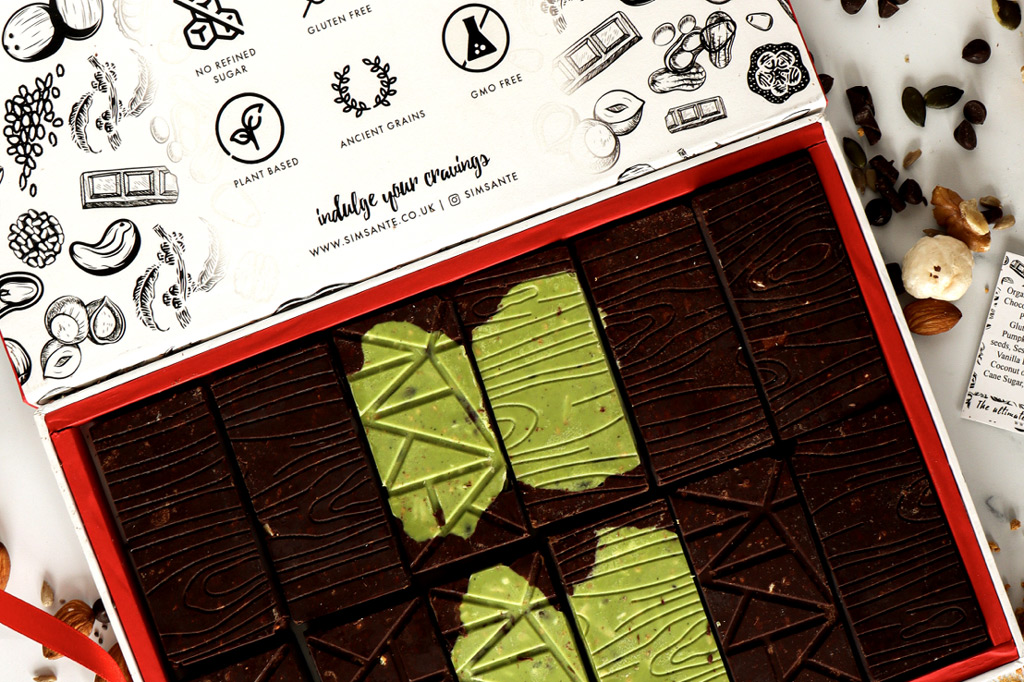
Simsanté
Simsanté specialises in creating sustainable ‘superfood chocolate’ – chocolate that does good for you, and for the planet. Founded by qualified nutritionist Simrin Singh, every Simsanté product is packed with an array of nutritional ingredients, from essential oils to ancient grains and ‘gut strengthening’ spices. ‘Over the years, we have always been conditioned to believe that chocolate is a treat, a guilty pleasure,’ says Singh. ‘I wanted to change that misconception by using natural sweeteners, spices and other plant based ingredients to make ‘Super Chocolate’, pure, natural, guilt free indulgence.’ As for its commitment to the planet, each Simsanté bar has been handcrafted with organic chocolate – better for you, for the farmers, and for the environment – and locally-sourced ingredients, whilst the brand’s quirky packaging is crafted from fully recycled materials. It’s a yes from us. simsante.co.uk
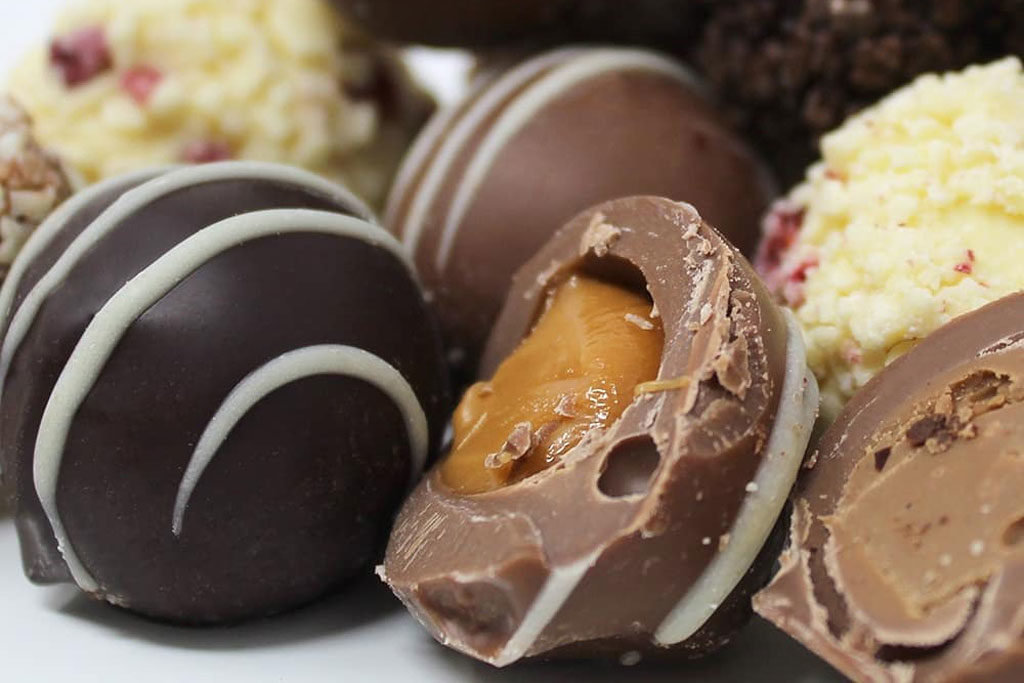 Instagram
InstagramMontezuma’s
Helen and Simon Pattinson were inspired to break into the chocolate business after a trip to South America in 1999. The result is independently-owned boutique brand Montezuma’s, which now has a number of shops around the country. Some of its chocolate is certified organic, and the company is careful to ensure it meets the standard of Rainforest Alliance, UTZ, Soil Association and Cocoa Horizons. Palm oil is never used, and every piece of packaging is either recyclable, biodegradable or compostable. All that being said, its owners are upfront about the fact that there’s still room for improvement – for instance, by continuing to take steps to reduce its carbon footprint. The ultimate aim is to become B Corp certified. In Montezuma’s’ wide collection you’ll find everything from buttons to truffle-filled bars, plus a dedicated vegan range. montezumas.co.uk
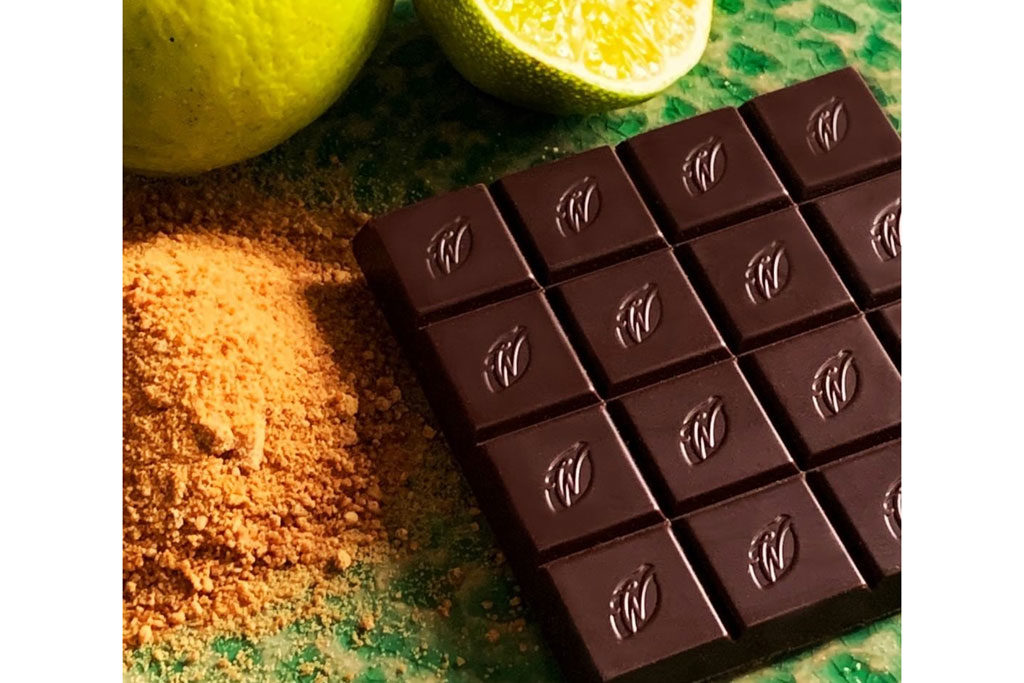 Instagram
InstagramWillie’s Cacao
Back in the mid Nineties, Willie Harcourt-Cooze decided to buy a farm in a region of Venezuela known for its top cacao production. This was the beginning of his bean-to-bar chocolate business, Willie’s Cacao, which now runs from the Devon countryside. Instead of describing itself as Fairtrade, the company focuses on direct trade: buying straight from the farmers and paying them premium prices. Willie’s Cacao is all about the bean, with the first product ever launched being 100 per cent cacao. Now the range includes everything from hot chocolate to truffles, plus a variety of flavoured natural chocolate bars – from pistachio and date to passion fruit. williescacao.com
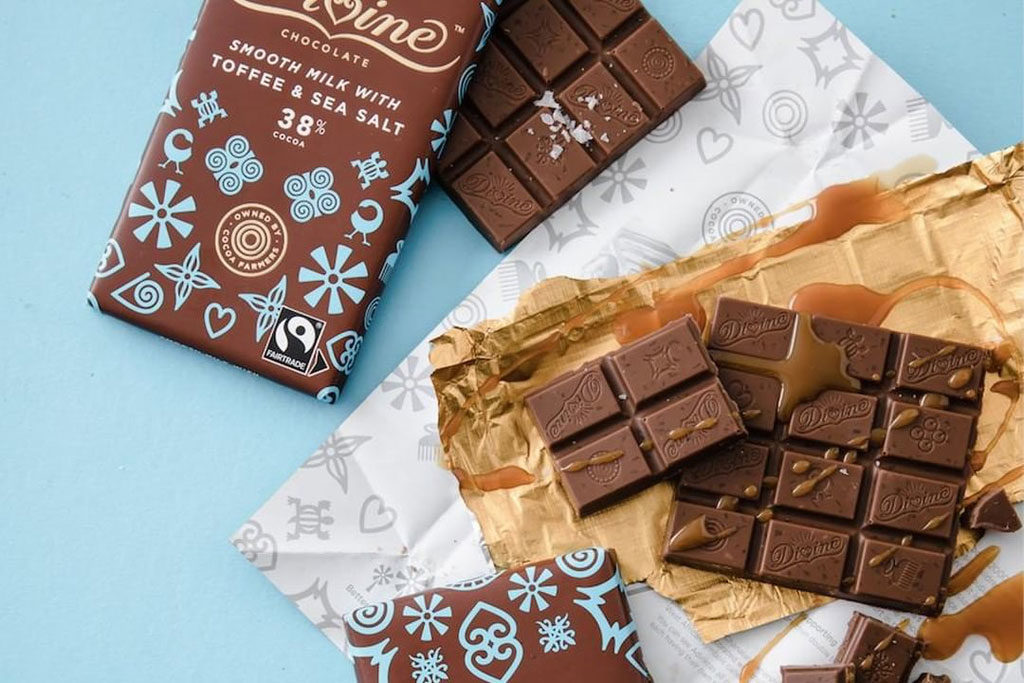 Instagram
InstagramDivine
A pioneer in its field, the origins of Divine date back to 1993, after structural changes in the cocoa market in Ghana prompted Nana Frimpong Abebrese to create a farmer-owned co-operative to help farmers sell their own cocoa. Kuapa Kokoo – which translates as ‘good cocoa farmer’ in the local language of Twi – was soon certified to sell Fairtrade cocoa. Then, in 1998, the co-operative launched The Day Chocolate Company alongside British company Twin Trading. The brand name Divine was created – and the rest is history. This co-owned model means farmers earn part of the profit, and ensures their voices are heard. In 2016, Divine became a B Corp company, a certification for brands that meet the highest standards of social and environmental performance and use business as a force for good. All chocolate is made with pure cocoa butter, sugar from Malawi and vanilla from Madagascar, then flavoured with Fairtrade nuts, fruit and other ingredients. Divine indeed. ukshop.divinechocolate.com
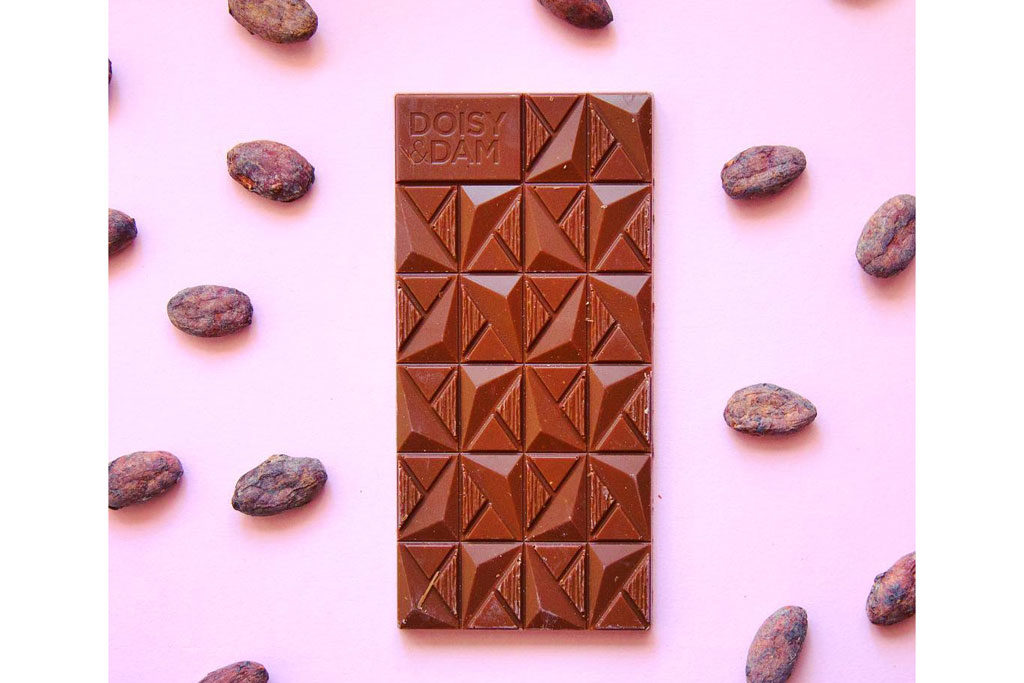 Instagram
InstagramDoisy & Dam
When Doisy & Dam founders Ed and Rich set out to change the chocolate scene back in 2012, ethics was more than just a buzzword: it was a pillar principle of the brand. It’s now a B Corp company, which means you can guarantee its model is working to be as beneficial as possible to people and to the planet. All ingredients are high quality, and everything is ethically sourced. Ethical chocolate trailblazer Luker Chocolate sits at the heart of the supply chain, who set up one of two not-for-profit cocoa research facilities in the world. Many of Luker’s cocoa farms consist of land recently reclaimed from drug cartels, and all of them facilitate a solid monthly wage for farmers. All Doisy & Dam products are vegan, made with natural ingredients and are palm oil-free. The dark chocolate and almond nuttercups are a must try. doisyanddam.com
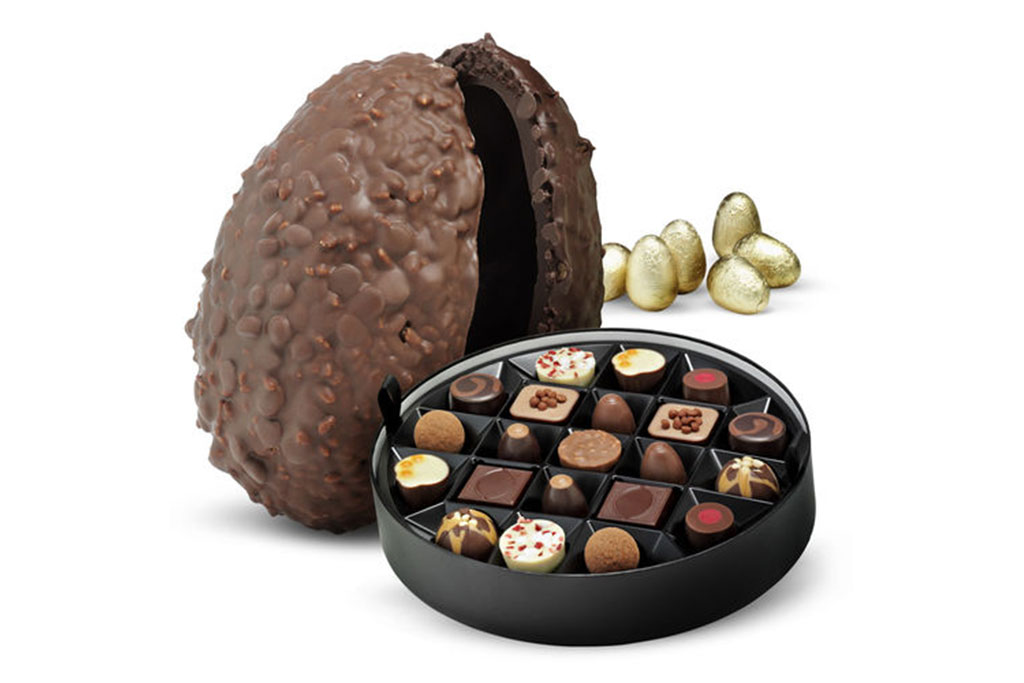
Hotel Chocolat
On a mission to make chocolate exciting again, Angus Thirwell and Peter Harris launched the first Hotel Chocolat shop in North London in 2004. Almost 20 years later, there are over 126 branches – and anyone who’s been inside one will know it is indeed an exciting experience. Hotel Chocolat offers an endlessly luxurious chocolate range, filled with interesting flavours and products. Yet the company is also striving to be a force for good, with ethics one of its three key pillars, alongside originality and authenticity. Hotel Chocolat laid out its first Planet Pledge in 2017, which set out targets of ensuring 100 per cent of packaging would be compostable, recyclable or reusable by 2021. So far, the brand is 90 per cent of the way there, and hopes to secure that final 10 per cent by next year. Cacao is sourced from an organic, eco-conscious farm in Saint Lucia, as well as from Ghana and sustainable co-operatives in Latin America and the wider Caribbean. Care is taken to ensure traceability and prosperity for these farms, as well as ensuring farming communities are supported. And by 2030, Hotel Chocolat aims to be net zero carbon. hotelchocolat.com
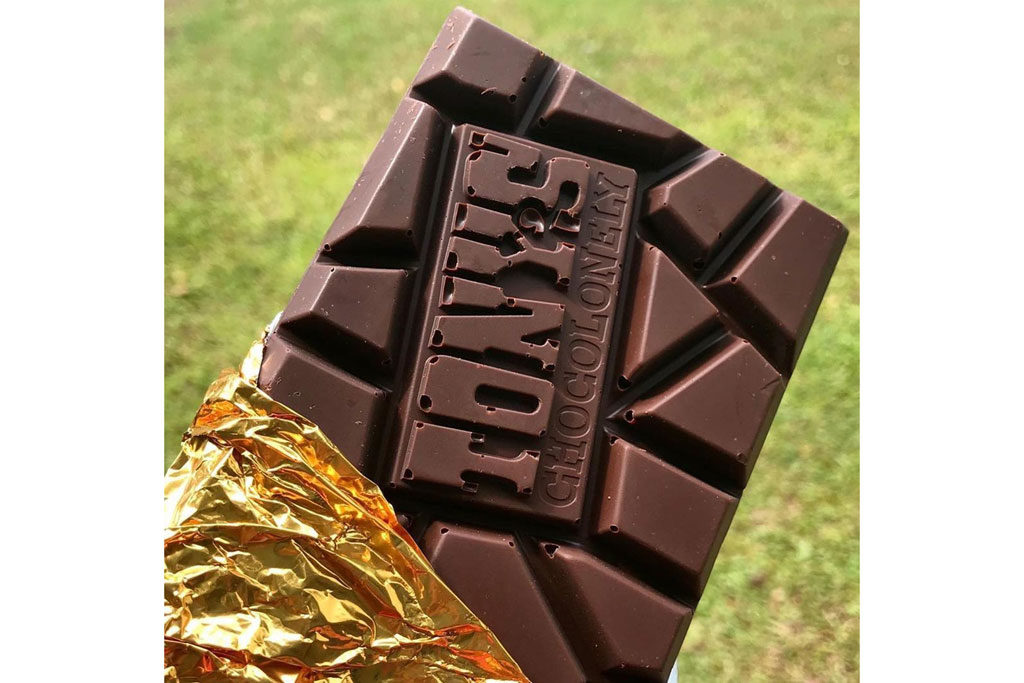 Instagram
InstagramTony’s Chocolonely
The raison d’être of Dutch-born brand Tony’s Chocolonely is to eradicate slavery in chocolate production. When you buy a bar, you’ll see the pieces of chocolate are unevenly sized; this is to represent how the money made from cocoa is unfairly divided. The company’s key aim is to ensure that everyone in the supply chain is happy with the chocolate, from the farmer to the consumer who buys the product. This is actioned through five main principles: traceable cocoa beans, paying farmers a premium price, working to professionalise farming cooperatives, promoting long-term partnerships, and investing in agricultural knowledge related to growing cocoa and other crops. Tony’s has chosen to work with Ghana’s Ivory Coast, as that’s where the main problems are – 1.56 million children work under illegal conditions there, and 30,000 people are victims of modern slavery. Aside from all its impressive ethical credits, the chocolate is truly delicious – and a quick word of warning: the caramel sea salt milk variety is highly addictive. tonyschocolonely.com
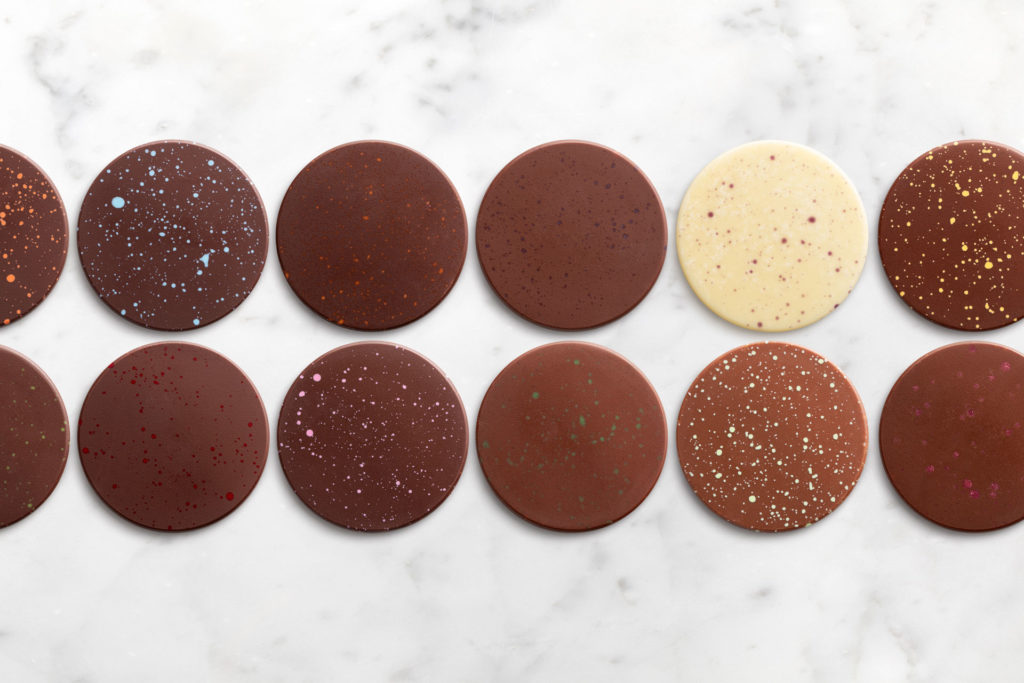
Cartografie
Michelin-starred quality chocolate with a conscience? We’re in. Cartografie is a new chocolate company created by ex-pastry chef at The Ritz Kae Shibata alongside Sven-Hanson Britt, winner of Masterchef The Professionals – The Rematch 2019, who joined forces after both finding themselves without jobs during lockdown. Aware of the potentially disastrous effects the chocolate industry can have on both the environment and the people of the cocoa origin countries, the pair made it their mission to only source from ethically-minded suppliers. Cocoa beans are sourced from 20 degrees either side of the equator where they ripen, before being turned into products by Kae and her team at their chocolate studio in London’s City Island. Its portfolio includes the Purity range: a selection of wafer-thin discs with a touch of sea salt, as well as the Cartografie range, which comprises filled handmade chocolates flavoured with unique water-based ganaches and caramels. cartografiechocolate.com
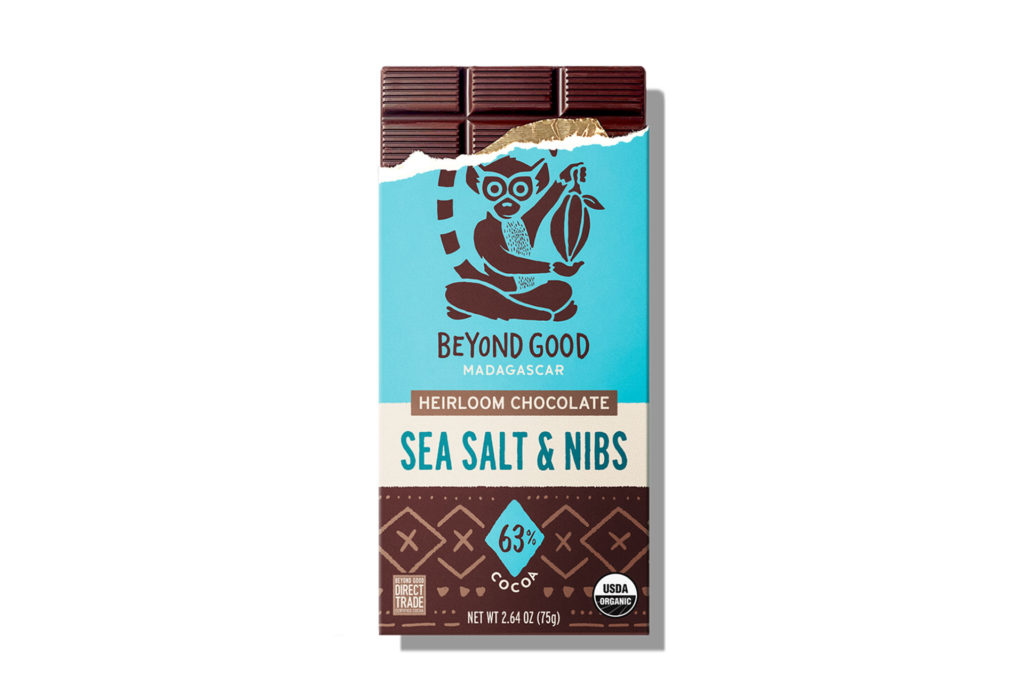
Beyond Good
So good they’re Beyond Good, these chocolate makers are setting new standards for sustainability. The heirloom cocoa crop they use contains a high concentration of criolla – the world’s oldest and most flavourful cocoa – and is grown mainly on Madagascar. To give back to the farmers who tend this precious crop, Beyond Good are committed to conservation on the island. Not only do they pay farmers well over the fair trade threshold, they also use cocoa agro-forestry to provide a habitat for Madagascar’s native (but critically endangered) lemurs. They even stock Madagascan vanilla pods alongside flavoured chocolate bars. For flavours, think dark and rich with hints of sea salt or orange. Apparently the high criolla content makes it tastes like your first bite of real chocolate – but we’ll let you be the judge of that. beyondgood.com
 The award winning sourdough and sea salt chocolate
The award winning sourdough and sea salt chocolatePump Street
Family-run bakery and craft chocolate maker Pump Street was founded in 2010 by daughter and daughter team Chris and Joanna Brennan – who have always been committed to green and ethical practices. Provenance is placed front and centre, with beans imported directly from single estates and cooperatives who ferment and dry the beans at origin. The company also works directly with farmers with minimal intervention, ensuring a transparent and honest supply chain. Recent green initiatives, meanwhile, have included removing single use plastics from the production process, using a renewable energy source, and cutting food waste in the bakery. Its efforts haven’t gone unnoticed: Pump Street has just been awarded the King’s Award for Enterprise 2023, achieved only by a handful of outstanding businesses in the UK. pumpstreetchocolate.com

